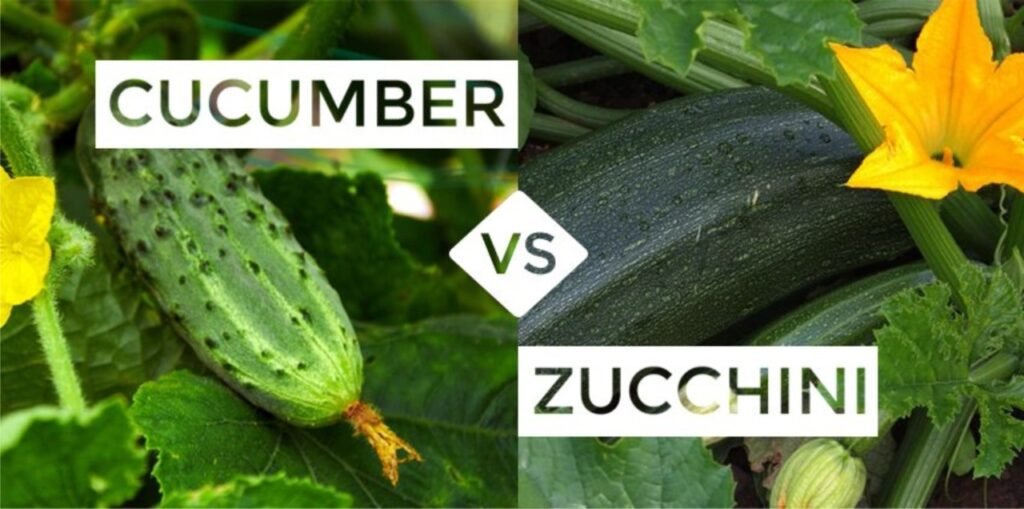
Do you want to know all about Zucchini and Cucumber? Similar flavors, appearance, and characteristics increase their resemblance, and it’s tough to distinguish between the two. Both have their peculiarities, and it is imperative to understand how these green genies differ from each other.
Cucumber is a refreshing vegetable that you often gulp in as salads or as a part of your favorite delicacies. Zucchini is also a similar type of gourd with multiple likeliness making it challenging for the food fanatics to make out at first sight. What’s probably an ideal way to do so? Let’s delve into the detailed study of Zucchini Vs. Cucumber before you make any pre-assumptions.

The dark green-colored veggie with a cylindrical shape and pale flesh is a refreshing and favorite food for those pursuing healthy breakfast diets. It’s rich in water content, again making it a desirable option for most people. The Latin name for cucumber plants is ‘Cucumis Sativus,’ and it belongs to the member of the gourd family. The family name of this veggie is Cucurbitaceae.
The sweet flavor, mild smell, and very high water content of cucumber make it a great option when your munching desire bolsters up. It’s a crisp, refreshing, and cool vegetable that you can even consume as raw. You can probably relate to the saying ‘Cool as a Cucumber. The Earthier taste of this vegetable is quite revitalizing, and there are numerous flavors, textures, and health benefits of this food. When cooked properly, it retains a slight crunch and great flavor.
Ponder over the common uses of cucumber:
Also, Find out about Benefits of seeds and their recipes
To put it short, Zucchini is a premium version of cucumber. It has dark green skin and appears pale on the inside. Food lovers commonly tend to get mistaken amongst the two at first glance. Zucchini is a popular type of gourd that has an orientation to the species Cucurbita pepo. It is pretty similar to the squashes and pumpkins. People consume it as refreshing summer squash, and it’s tender and easily edible.
Zucchini holds a distinct flavor from the cucumber. It has a mild, slightly bitter, and sweet taste that gives it an overall rich feel. The sweetness of this vegetable gets more prevalent at the time of cooking. Putting it to heat further softens the Zucchini, but it’s naturally quite tender to take a bite even when it’s raw.
Getting confused about the uses of Zucchini in cooking? Take a quick glimpse at the list below:
Learn ways in which Cinnamon helps in weight loss
An overview of the two veggies’ appearance, taste, uses, and flavors can give you a hang of its difference. Zucchini vs. Cucumber comparison is detailed in detail below.
Also, Check Top 5 Health and Fitness Tips
The Above comparison on Zucchini Vs. Cucumber gives you a fair view of the common differences and similarities between the two power veggies categorized as fruits. Cucumbers are a great source to acquire sound brain health, immunity, antioxidants, digestive health, and fresh breathing.
Zucchini is very rich in its nutritional value and has a higher option to stir and serve as flavourful delicacies. By comparing Zucchini vs. cucumber, you can hang on its shape, color, and flavor profiles. Both the options impart freshness and flavor when eaten as a dish or raw. Keep munching on such healthy foods for overall healthcare!